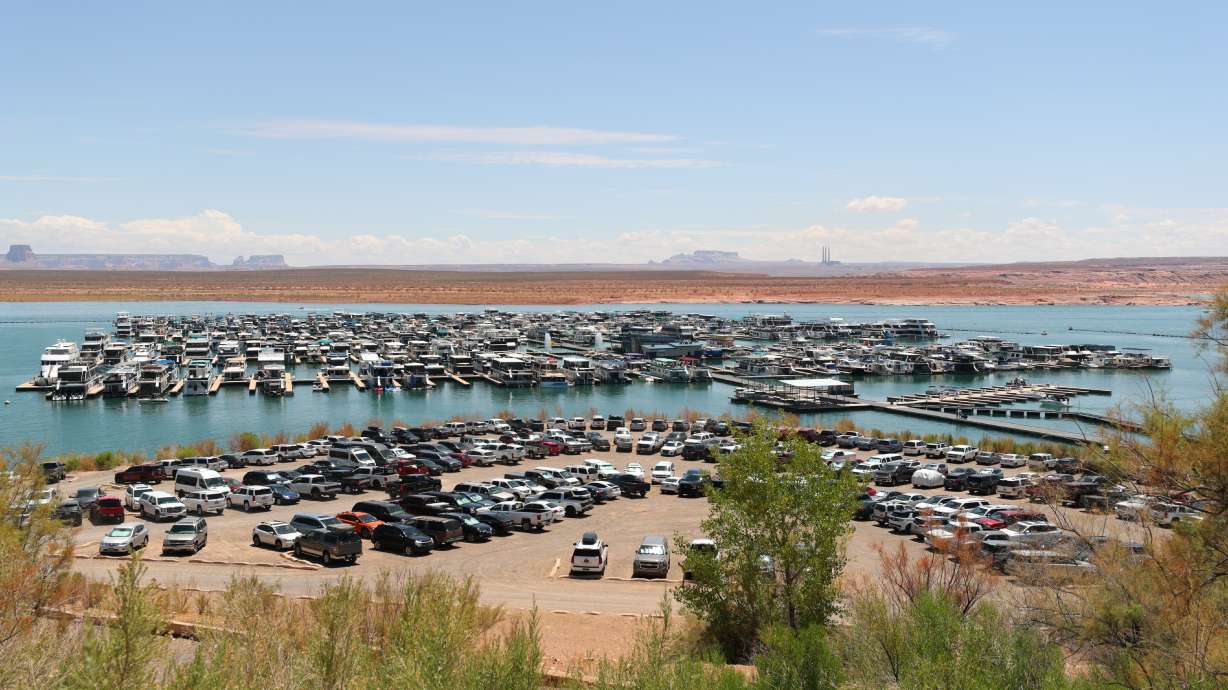Estimated read time: 3-4 minutes
This archived news story is available only for your personal, non-commercial use. Information in the story may be outdated or superseded by additional information. Reading or replaying the story in its archived form does not constitute a republication of the story.
SALT LAKE CITY — Utah conservation officers have announced they are stepping up patrols in water bodies across the state, as the summer boating season kicks off this Memorial Day weekend.
The Utah Division of Wildlife Resources will be checking for boat compliance, including paddle boards and kayaks, to prevent the spread of aquatic invasive species like quagga and zebra mussels.
"Our goal is to educate the public and to prevent wildlife violations from occurring in the first place," DWR Lt. Bruce Johnson said in a statement. "If quagga mussels spread from Lake Powell to other Utah water bodies, it would significantly impact water delivery systems in that area and also impact the fisheries at the affected waterbodies."
Quagga mussels are microscopic when they first hatch, but form colonies that crust over any underwater surface, making them easily transferable from one lake to another. Lake Powell is currently the only Utah water body with confirmed quagga mussels, according to the DWR.

How to be in compliance
Anyone who is looking to boat in Utah is required to take a 20-minute online education course, a law which went into effect July 1, 2023. The rule of thumb — if it floats it's a boat —includes everything from canoes and kayaks to floating inner tubes and paddleboards.
The course is required for residents and nonresidents, and the proof of completion certificate from that course must be shown to a compliance officer if asked for.
Only those with a motorized boat are required to pay the aquatic invasive species fee, $20 per boat for residents and $25 for nonresidents. New legislation in 2023 separated boat registration fees and the invasive species fee. Owners must now register their boat through the Utah Division of Motor Vehicles, and separately pay the invasive species fee through the Department of Wildlife Resources.
Additionally, all watercraft that have been used on Lake Powell are required to have an exit inspection, and either be decontaminated or wait the required dry time before launching again. A map of inspection and decontamination stations can be found on the DWR invasive species website. Four free dip tanks that decontaminate boats with hot water will be open at Utah Lake, Sand Hollow, Willard Bay, and Lake Powell's Wahweap Marina.
The DWR is warning that "knowingly transporting a watercraft with mussels attached could result in a class A misdemeanor charge," which could include thousands of dollars in fines and potential seizure of the boat.
Why are quagga mussels bad?
Quagga mussels are extremely destructive. The Division of Wildlife Resources reports that one mussel can release over a million free-floating eggs a year, which are fertilized and expel microscopic larvae that swim freely until they attach to any hard surface.

The resulting mussels filter water of its nutrients, causing "explosive growth of bottom algae and nuisance weeds that choke native vegetation and get washed ashore to rot," according to researchers at Utah State University.
Quagga mussels cause fish populations to crash, they hurt to step on, they cause millions in damage by choking out canals, pipelines, and boating equipment, plus the thumbnail sized shellfish "are almost impossible to eradicate; they have an astounding ability to resist chemical and other methods of removal," the DWR said.
Lake Powell, despite over a decade of prevention measures starting in 2000, was quickly infested with the mussels after they were first detected in 2012, according to the National Park Service. The state has been investing heavily in preventing the spread of these creatures. A report from last year showed there were 269,362 vessels inspected and 6,642 decontaminations completed in 2023, and 180 had mussels attached to them or within the interior systems.










